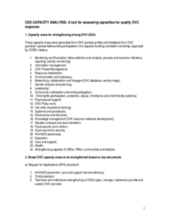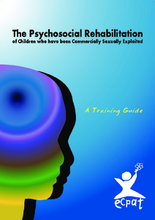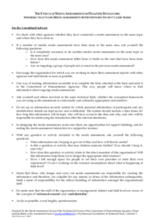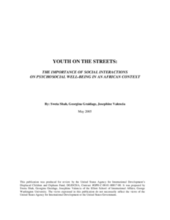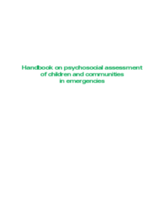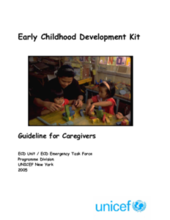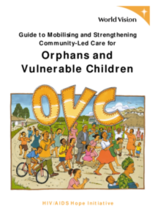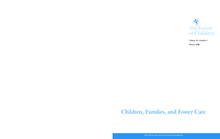Displaying 491 - 500 of 518
Minimum standards for day care centers in Romania.
This document provides a tool that was used to assess broad capacity areas for quality OVC response in Uganda.
A resource pack for training caregivers of children who have been commercially sexually exploited. It includes 12 units to develop knowledge and practical skills of caregivers in areas such as child sexual abuse, commercial sexual exploitation, special and psychosocial needs, behavior management, health promotion, life and social skills, education and vocational training, communication and therapeutic skills, and rehabilitation.
Lists ethical “do’s and dont's” specific to Consultants/Advisors, Managers/Supervisors, and Field-Level Workers arranging and conducting Needs Assessments in disaster situations.
Research on the psychosocial factors contributing to distress of children living and working on the streets in Ethiopia. Highlights the importance of facilitating social relationships and connectedness. Suggests intervention constructs and measures based on the Psychosocial Child Well-being model.
A guidebook focusing on the assessment to be conducted when an emergency first hits or just after a major event in an armed conflict. Outlines the preparation needs of an assessment team and describes what an assessment should concentrate on.
Guidelines for caregivers of children in emergency situations, with a focus on the role of play in childhood learning and development. Includes a comprehensive list of suggested activities.
Comprehensive toolkit and resource pack for mobilising community-led OVC care. Includes detailed resources for training home visitors.
Helpful resource for defining key terms, issues, and practices in psychosocial support. Contains a short list of recommended tools for support and monitoring of psychosocial support interventions.
In assessing the practice of foster care in the US and its current limitations, this series of articles advocates for the implementation of health assessments for all children in care, support to preserve permanency and assist birth families, comprehensive supports for foster families, specialized services for children in need, increased cultural competency in social work practice, coordinated services across sectors for families in need and comprehensive well being assessments for children in care.


